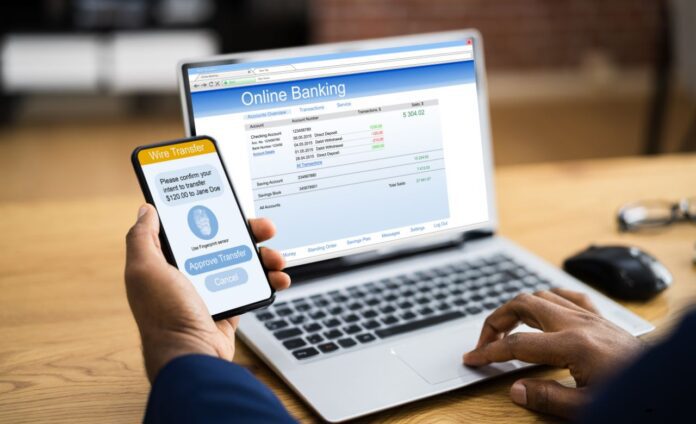Mistakes in bank accounts are more common than you might think, ranging from incorrect charges, unauthorized transactions, and misplaced deposits to fees you don’t understand. If you notice an error with your bank account, it’s essential to resolve the issue quickly to avoid complications like overdrafts, missed payments, or even identity theft. Here’s a step-by-step guide on who you should contact and how to resolve the problem effectively.
Table of Contents
1. Contact Your Bank Customer Service
The first and most straightforward action is to contact your bank’s customer service department. Banks typically have a dedicated support team for resolving account issues. You can usually find customer service contact information on the bank’s website, on the back of your bank card, or within the bank’s mobile app.
- How to contact customer service: Most banks provide multiple ways to reach them—by phone, email, live chat on their website, or through their mobile banking app. Some banks even offer support via social media platforms.
- What information to provide: When speaking with customer service, be ready with your account details, such as your account number, recent transactions, and a clear description of the issue. The more specific you are, the faster the issue may be resolved.
2. Visit a Local Branch
If you feel more comfortable speaking with someone in person or the issue is too complex to handle over the phone, visiting your local bank branch can be the most effective way to resolve the problem. When meeting with a bank representative, ensure you bring relevant documentation, such as bank statements, transaction receipts, or any other paperwork that can support your case.
- Advantages of visiting a branch: Face-to-face communication can often lead to quicker resolutions, especially if the issue requires you to fill out forms or verify your identity. You can also request to speak directly with a branch manager if needed.
3. Dispute the Transaction (If Applicable)
If the mistake involves an incorrect charge or unauthorized transaction, most banks allow you to dispute the transaction. This is particularly useful if there’s been fraud on your account or if you’ve been overcharged for a purchase. Banks are required to investigate disputed charges under the Electronic Fund Transfer Act (EFTA) or the Truth in Lending Act (TILA), depending on whether it’s a debit or credit card issue.
- How to file a dispute: Most banks offer a formal dispute process, which can often be initiated through their website, mobile app, or by calling customer service. For debit card transactions, the dispute must typically be filed within 60 days of the error appearing on your statement.
- Timeframe for resolution: Under federal regulations, your bank is usually required to investigate and resolve disputes within 45 days for most types of accounts.
4. File a Complaint With the Bank’s Ombudsman
If your issue isn’t resolved to your satisfaction through customer service, you can escalate it to the bank’s internal ombudsman. The ombudsman is an independent body within the bank that deals with customer complaints that are not resolved through regular channels.
- How to contact the ombudsman: Banks usually have a specific department or webpage for filing complaints with their ombudsman. Look for details on your bank’s website, or request this information from customer service.
- Ombudsman’s role: They will investigate your case independently, and if your complaint is valid, they will work with the bank to rectify the situation.
5. Contact Regulatory Bodies if Needed
If your bank fails to resolve the issue or you believe that your rights as a customer are being violated, you can contact regulatory bodies. In the U.S., for example, you can reach out to the Consumer Financial Protection Bureau (CFPB) or the Office of the Comptroller of the Currency (OCC) for national banks. These agencies oversee the practices of financial institutions and help mediate disputes.
- Filing a complaint with the CFPB: The CFPB allows customers to file complaints about financial institutions through their website. Once filed, the CFPB forwards the complaint to your bank for resolution and tracks the bank’s response.
- Filing a complaint with the OCC: If your bank is federally regulated, you can file a complaint directly with the OCC. They’ll investigate whether the bank has followed proper procedures and take appropriate action if needed.
6. Consult a Financial Advisor or Legal Help
If the mistake is severe, such as in the case of identity theft or a significant financial loss, you may need to consult a financial advisor or even a lawyer specializing in financial issues. They can help you navigate complicated financial problems and may recommend legal action if necessary.
- When to seek legal advice: If your bank account error involves fraud or a large financial loss, and the bank isn’t resolving the issue to your satisfaction, legal counsel may be needed. Legal representation can also help if your credit score has been damaged due to the error.
Tips to Avoid Future Banking Mistakes
- Regularly monitor your account: Set up alerts for transactions, review your statements, and frequently check your account balances. Early detection can prevent small errors from turning into bigger problems.
- Maintain records: Keep copies of important documents, receipts, and correspondence with your bank in case you need to prove an error.
- Use two-factor authentication: This helps secure your account and prevents unauthorized access, especially for online banking.
Conclusion
If you discover a mistake with one of your bank accounts, the process to resolve it should always start with contacting the bank directly, either through customer service or by visiting a branch. If the issue isn’t resolved promptly, there are several options for escalation, including filing formal disputes, reaching out to the bank’s ombudsman, and even contacting regulatory agencies. By knowing whom to contact and how to escalate issues effectively, you can ensure that any mistake with your bank account is addressed swiftly and thoroughly.
